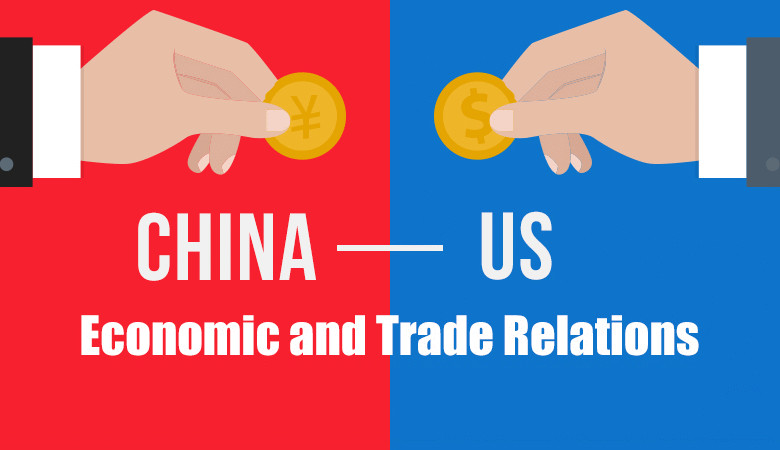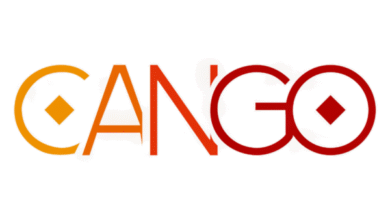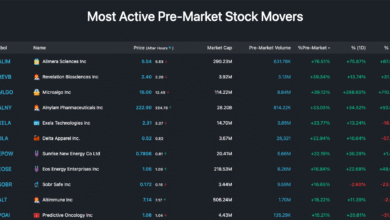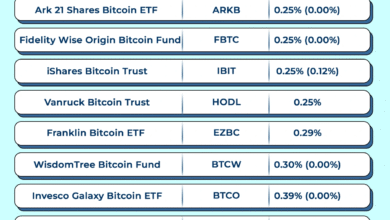China Trade Relations: A Call for Global Cooperation

China trade relations are increasingly pivotal in the landscape of global commerce, especially as nations grapple with political issues in trade. In 2024, during the World Economic Forum’s ‘Summer Davos’ held in Dalian, Chinese Premier Li Qiang emphasized the importance of fostering international cooperation to overcome rising tariffs and protect the integrity of trade. He urged the global community not to politicize trade, underscoring its role in addressing significant challenges such as trade and security. Li’s remarks reinforced the sentiment that globalization is a force that cannot be easily reversed, advocating for collaborative efforts among nations. With leaders from Singapore, Vietnam, and Ecuador in attendance, the dialogues at this summit reflect a crucial moment for nations to rethink their strategies in the face of growing economic barriers and tensions.
The dynamic between China and its trading partners remains a focal point as the international economy evolves. Observations from recent events, such as the annual World Economic Forum gathering in Dalian, China, underscore a critical discourse around economic policies and their intersection with geopolitical matters. Premier Li Qiang’s advocacy for collaboration over conflict highlights an urgent need for countries to engage in constructive dialogue regarding trade practices and security concerns. Through fostering cooperation and understanding, nations can collectively address issues impacting the global trade landscape. These discussions resonate with leaders aiming to safeguard trade relationships while navigating the complexities of international affairs.
China’s Li Calls for Non-Politicization of Trade Relations
At the recent ‘Summer Davos’ event in Dalian, Premier Li Qiang emphasized the importance of treating trade as a non-political issue. He noted that while there are rising tariffs and increasing geopolitical tensions, trade should be viewed primarily as a means to foster international cooperation rather than a tool for political leverage. Li’s message resonated with attendees, as he pointed out that politicizing trade can have detrimental effects on global market stability and economic growth.
The sentiment echoed throughout the conference, where global leaders gathered to discuss the future of international commerce. With trade being a foundational element of global economic development, the challenge is to navigate political issues within trade frameworks without adversely affecting economic relationships. Li highlighted that maintaining open channels for dialogue and cooperation must remain a priority.
International Cooperation as a Solution to Trade Challenges
During his address, Li Qiang highlighted the need for international cooperation to address the current challenges in global trade. With the rise of protectionism and various political issues affecting trade relations, collaborative efforts among nations are crucial. This cooperative approach can help shape more favorable trade policies that benefit all parties involved, reflecting a shared commitment to globalization.
As trade volatility increases, leaders are recognizing that security concerns should not dictate the trade agenda. Li’s call for collaboration indicates a need for countries to work together to create a more stable and predictable trading environment. Only through mutual respect and adherence to international standards can nations resolve their disputes and enhance trade security.
China’s Li Urges Non-Political Global Trade Engagement
The Summer Davos conference served as a platform for global leaders, including Premier Li, to address the intricate relationship between politics and global trade. Li’s assertion that trade issues should not be politicized reflects a growing consensus among economic leaders that a non-political approach could lead to more sustainable growth and greater international trade security. As tensions rise between major economies, the emphasis on international cooperation could reshape the dynamics of global trade.
By urging nations to engage in trade discussions without the weight of political agendas, Li sets a progressive tone for future diplomatic relations. This approach encourages countries to collaborate on trade agreements focused on mutual benefit rather than divisive political narratives. The outcome could lead to a stronger, more resilient global trading system that thrives on partnerships and collective growth.
Global Trade and Security: The Path Forward
As global trade dynamics evolve, the interplay between trade and security remains a pivotal topic among international leaders. Premier Li Qiang’s statements at the Summer Davos indicate a recognition that trade and security must coexist without conflict. The integration of trade policies and security considerations should enhance cooperation rather than create obstacles. This delicate balance is essential for the development of a robust global economy.
Moreover, understanding how trade ties into national security frameworks can foster dialogue among countries navigating similar challenges. Countries that actively engage in conversations about trade security measures will likely find more common ground in addressing the challenges posed by rising tariffs and shifting geopolitical landscapes. Li’s commitment to dialogue underlines the importance of a concerted effort among nations to secure trade routes while developing strategies that prioritize economic stability.
Key Figures at the Summer Davos 2024
The Summer Davos event in Dalian attracted a diverse array of powerful figures from around the globe, reflecting the multinational interest in maintaining open trade channels amidst geopolitical uncertainties. Attendees included national leaders from countries like Singapore and Vietnam, as well as business magnates such as JD.com Founder Liu Qiangdong. Their presence underscored a collective commitment to fostering an environment conducive to international trade and cooperation.
Conversations among these attendees often revolved around the current political landscape affecting global trade relations. The discussions highlighted shared concerns regarding rising tariffs and other barriers that could impede economic progress. By engaging stakeholders from different sectors and regions, the event illustrated a united front aimed at reinforcing the importance of collaboration in navigating the complexities of modern trade.
The Role of Major Economies in Global Trade
Premier Li’s address at the Summer Davos placed emphasis on how major economies play a critical role in shaping the framework for international trade. As significant players in the global market, countries like China, the United States, and the European Union must take the lead in ensuring that trade policies are conducive to open markets and fair competition. By collaborating on trade matters, these economies can work to de-escalate tensions that disrupt trade flows.
Sustainable global trade requires a commitment from these powerful nations to not only enhance their own economies but to also support developing countries in their trade endeavors. Establishing fair trade practices can lead to better economic outcomes for all involved, fostering a spirit of collaboration and innovation that benefits the global economy. Li’s call for joint efforts among these leading nations sets the stage for a potentially transformative approach in international trade relations.
Understanding Political Issues Influencing Trade Today
Political issues play a significant role in shaping trade policies and international relations, as highlighted by Li’s remarks at the Summer Davos. Rising nationalism, protectionist measures, and regional conflicts can create barriers that hinder trade and economic cooperation between nations. Understanding these dynamics is crucial for developing effective strategies to facilitate trade.
Countries must consider how political climates impact bilateral and multilateral trade agreements. By promoting dialogue and transparency, leaders can work to resolve political issues that threaten trade relationships. Preventing the politicization of trade allows nations to focus on achieving common goals and solutions, thus enhancing global economic stability.
The Importance of Globalization in Today’s Economy
Li Qiang’s assertions regarding globalization emphasize its fundamental role in today’s interconnected economy. He argues that the reversal of globalization would be counterproductive, as businesses and consumers alike benefit from unrestricted trade flows and diverse markets. The focus should remain on advancing globalization which drives innovation and economic development worldwide.
In a world increasingly affected by political tensions, it is essential to promote an understanding that globalization brings essential resources, knowledge, and connectivity to economies of all sizes. By fostering conditions that allow globalization to thrive, countries can better position themselves for growth and resilience in international markets.
Future Prospects for Trade Relations Amidst Challenges
Looking ahead, the future of trade relations will be heavily influenced by the current challenges outlined by leaders like Premier Li Qiang. The emphasis on international cooperation suggests a pathway forward amidst rising tariffs and geopolitical tensions. Embracing dialogue will be essential to navigating these complexities and finding new opportunities for collaborative trade.
As nations focus on solidifying their trade relationships, integrating advanced technologies and addressing environmental concerns will also be crucial for future trade dynamics. With the support of forward-thinking leaders, the global community can adapt and evolve, ensuring that trade remains a powerful catalyst for economic growth and stability.
Frequently Asked Questions
What are the recent developments in China trade relations at the Summer Davos 2024?
At the Summer Davos 2024, Chinese Premier Li Qiang emphasized the importance of maintaining stable and cooperative China trade relations despite global challenges. He urged nations to collaborate on international trade and not let political issues interfere, showcasing China’s commitment to the international economy.
How does political tension affect China trade relations?
Political issues in trade can significantly impact China trade relations, leading to increased tariffs and barriers. Premier Li Qiang highlighted the need to avoid politicizing trade to promote stability and cooperation among countries, aiming to ensure a more secure international trade environment.
What is China’s stance on globalization and trade at the Summer Davos 2024?
During the Summer Davos 2024, Premier Li Qiang asserted that globalization will not be reversed and emphasized the critical role of international trade in addressing global issues. His remarks reflect China’s ongoing efforts to reshape global trade relations while encouraging cooperation.
How can countries enhance international cooperation in trade with China?
Enhancing international cooperation in trade with China involves engaging in dialogue and negotiations that prioritize trade over political agendas. As noted by Premier Li Qiang at the Summer Davos 2024, such cooperation is essential for overcoming global trade challenges and ensuring mutual benefits.
What role did international cooperation play in Premier Li’s speech at the Summer Davos 2024?
In his speech at the Summer Davos 2024, Premier Li Qiang highlighted that international cooperation is crucial for effective China trade relations. He called for collaborative efforts among nations to tackle rising trade barriers and promote a stable global trade environment.
What are the implications of rising tariffs on China trade relations?
Rising tariffs pose significant challenges for China trade relations as they can disrupt supply chains and increase costs. Premier Li Qiang at the Summer Davos 2024 urged countries to focus on cooperation instead, suggesting that collective action can mitigate the negative effects of such trade barriers.
How does security influence trade relations with China?
Security concerns can complicate trade relations with China by introducing uncertainty in international markets. Premier Li Qiang stressed the importance of keeping trade and security distinct, advocating for a focus on trade to foster smoother China trade relations and robust economic growth.
What initiatives is China proposing to maintain strong trade relations globally?
China is proposing several initiatives to maintain strong trade relations globally, including fostering dialogue and resisting the politicization of trade. Premier Li Qiang’s address at the Summer Davos 2024 highlighted China’s commitment to collaboration and support for international cooperation in trade.
| Key Point | Details |
|---|---|
| Political Stance | Li Qiang urges against politicizing trade and turning it into a security issue. |
| Globalization | Li asserts that globalization will not be reversed, emphasizing the importance of international economic engagement. |
| Call for Collaboration | Li encourages countries to collaborate on trade amidst rising tariffs and trade barriers. |
| International Cooperation | Discussions highlight China’s efforts to strengthen international trade relations. |
| Event Highlights | VIP attendees at the Summer Davos included leaders from Singapore, Vietnam, Ecuador, and major industry figures. |
| Recent Diplomacy | Li’s recent diplomatic activities included meetings with leaders from various nations. |
Summary
China trade relations are pivotal in today’s global economy. During the 2024 World Economic Forum in Dalian, Premier Li Qiang emphasized the importance of maintaining trade as a non-political issue, urging countries to collaborate despite rising trade barriers. His message underlined the ongoing commitment to globalization and international cooperation, essential in addressing various global challenges. Through these efforts, China aims to enhance its trade relations, fostering a more interconnected world economy.




